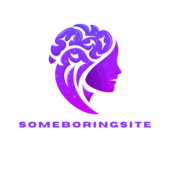
Have you ever been faced with a mind-bending question that left you pondering for hours? I certainly have. The kind of question that challenges your thinking, sparks curiosity, and pushes the boundaries of your imagination. Mind bender question are not just riddles or puzzles; they are thought-provoking inquiries that invite you to explore new perspectives and test the limits of your intellect.
I’ll delve into the fascinating world of mind bender question, exploring their impact on our cognitive abilities, problem-solving skills, and creativity. From classic conundrums to modern brain teasers, these questions have the power to captivate our minds and inspire a sense of wonder.
Mind Bender Question
Types of Mind Bender Questions
 I categorize mind bender questions into various types to evoke different aspects of critical thinking and creativity. Some common types include logic puzzles, lateral thinking challenges, riddles, and mathematical conundrums. Each type targets specific cognitive skills, encouraging me to think outside the box and approach problems from diverse perspectives.
I categorize mind bender questions into various types to evoke different aspects of critical thinking and creativity. Some common types include logic puzzles, lateral thinking challenges, riddles, and mathematical conundrums. Each type targets specific cognitive skills, encouraging me to think outside the box and approach problems from diverse perspectives.
Benefits of Solving Mind Bender Questions
Engaging with mind bender question offers numerous benefits that contribute to overall cognitive development and problem-solving abilities. By tackling these challenging queries, I enhance my analytical thinking, boost my creativity, and sharpen my decision-making skills.
Historical Origin of Mind Bender Questions
Influence of Ancient Riddles and Puzzles
Exploring the historical roots of mind bender question unveils their connection to ancient riddles and puzzles. These enigmatic challenges have been intertwined with human culture since early civilizations, serving as a means of entertainment, education, and mental stimulation. Ancient civilizations like the Egyptians, Greeks, and Romans used riddles and puzzles to test wit, wisdom, and problem-solving skills.
Evolution into Modern Brain Teasers
The evolution of ancient riddles and puzzles into modern brain teasers marks a significant shift in the complexity and diversity of mind bender question. With advances in technology and the understanding of cognitive processes, contemporary brain teasers are designed to target specific cognitive abilities, such as logical reasoning, lateral thinking, and pattern recognition.
Popular Mind Bender Questions in Literature and Media
Examples from Classic Books
 Listing notable examples from classic literature where mind-bender questions have left readers pondering:
Listing notable examples from classic literature where mind-bender questions have left readers pondering:
- In Lewis Carroll’s “Alice’s Adventures in Wonderland,” the Mad Hatter poses the famous riddle, “Why is a raven like a writing desk?” challenging readers with a nonsensical yet thought-provoking question.
- Shakespeare’s play “Hamlet” features the existential question, “To be, or not to be,” prompting contemplation on life, death, and existence itself.
- Arthur Conan Doyle’s Sherlock Holmes presents readers with numerous mind-bending puzzles, such as the “Five Orange Pips” mystery in “The Adventures of Sherlock Holmes,” testing deductive reasoning and logical thinking.
Usage in Movies and Series
Exploring the incorporation of mind-bender questions in popular films and TV shows:
- The movie “Inception” directed by Christopher Nolan delves into the concept of dreams within dreams, challenging viewers to distinguish between reality and the dream world.
- The TV series “Black Mirror” often features thought-provoking scenarios that push the boundaries of technology and society, prompting viewers to contemplate ethical dilemmas and societal implications.
- In the film “The Matrix,” viewers are confronted with the question of reality versus illusion, urging them to question the nature of their existence within a simulated world.
Tips for Solving Mind Bender Questions
Developing Critical Thinking Skills
 To enhance critical thinking skills when tackling mind bender question, I recommend breaking down the problem into smaller parts. By deconstructing the question, I can easily identify patterns or hidden clues that may lead to the solution. This strategy helps me approach complex problems logically and systematically, improving my overall problem-solving abilities.
To enhance critical thinking skills when tackling mind bender question, I recommend breaking down the problem into smaller parts. By deconstructing the question, I can easily identify patterns or hidden clues that may lead to the solution. This strategy helps me approach complex problems logically and systematically, improving my overall problem-solving abilities.
Practice Techniques and Resources
When it comes to practicing mind bender question, I find it beneficial to engage in activities that stimulate different areas of the brain. Solving crossword puzzles, Sudoku, or chess problems helps me sharpen my cognitive skills and prepares me for more challenging mind bender question. Additionally, online platforms and mobile apps offer a plethora of mind bender question resources, allowing me to practice regularly and track my progress.
